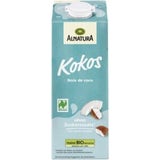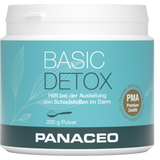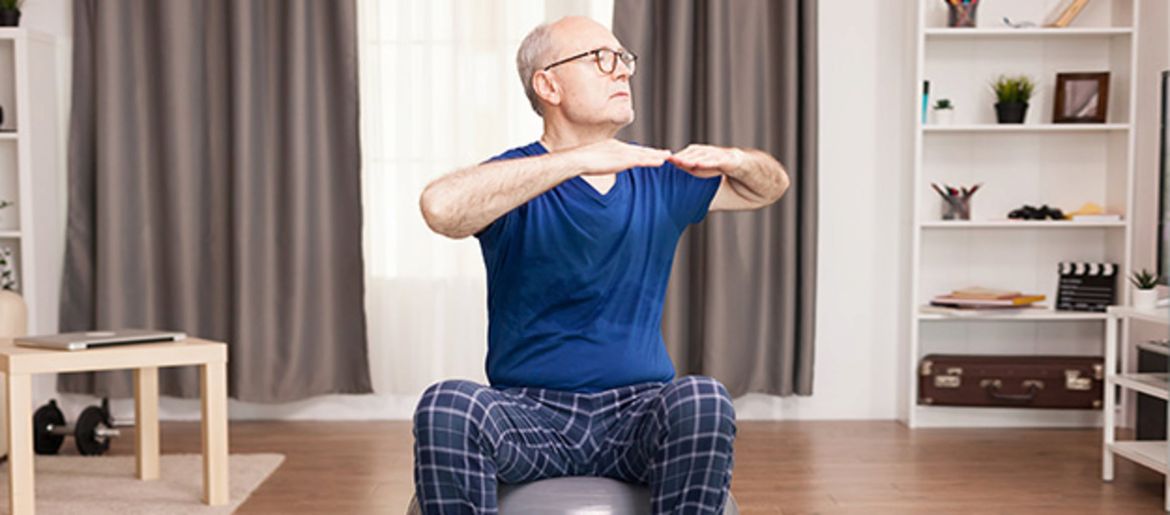Exercise in Older Age
Sport is not only a great thing for young people but also brings many benefits to older people. More than that, exercise is actively recommended for older people.
For example, studies show that physical activity can prevent the consequences of falls and reduce the risk of losing independence. What should be noted, however, is that not all types of sport are equally suitable for older people.
Here is an overview and some advice on physical exercises that are suitable for older people.
The Benefits of Exercise for Older People
Muscle mass decreases steadily shortly after the age of 30. However, because this happens very slowly, most people do not notice it. After the age of 50, however, this process accelerates noticeably. In addition, shortness of breath increases with ageing, weight gain is common and physical balance weakens.
The ability of older people to remain independent also decreases, and the risk of falling increases. This is why inactivity can be so risky for older people. To combat these consequences, gentle exercise can be good therapy.
Regular physical activity helps to
- Reduce the risk of falls
- Reduce the risk of obesity
- Reduce stress and prevent heart disease
- Help lower cholesterol levels
- Fight osteoporosis
- Improve the immune system
- Maintain muscle mass
- Create social bonds and reduce the risk of depression
Consider your Physical Condition
Before embarking on a new physical and sporting activity, you need to know and consider your abilities. It is important to talk about it with a doctor or a sports medicine specialist to check if the activity is suitable for your health condition. Depending on the results, you can then adapt your exercise habits to your health condition.
In any case, you should take some precautions, especially if you are just starting to exercise again:
- Do not jump into a physical activity overnight: Training must start slowly and then be increased gradually.
- Regularity is important to achieve good results and avoid injuries.
- Avoid sporting competitions and extreme efforts.
- Wear appropriate equipment: choose suitable shoes and clothing for the type of sport.
- Make sure to drink enough during sports.
Which Sports are Suitable for Older People?
Physical performance after the age of 50 is quite different from when you are 20. That's why you can't do every sport you did when you were younger. However, fitness and flexibility can be improved at any age.
Some sports are not recommended in old age, especially if you have never done them before. These include skiing or racquet sports such as tennis and squash, which can overload the joints. Running could also be too strenuous for the heart and knees of older people. However, there are many sports that are perfect for older people. Here are a few suggestions:
Yoga
Yoga aims to harmonise body and mind. It is based on gentle, sequential movements and breathing techniques that relax the muscles. Yoga makes the joints supple.
Nordic Walking
Nordic walking is a sport practised in Scandinavia to make fast progress on snow-covered fields. Unlike traditional walking or hiking, Nordic walking is done with poles.
The vertical and horizontal pushing of the poles trains the arms, chest muscles, shoulders and glutes. This balanced and harmonious endurance training produces less shock and vibration than running. In fact, the poles reduce more than a third of the weight that acts on the knees. It is therefore much better for the joints.
Gymnastics
In indoor gymnastics, the movements can be adapted to the needs of older people. The exercises are generally done in groups and allow the body to be strengthened and toned. Aqua gymnastics is also an excellent method of keeping fit that is easy on the joints. In the water, you feel light because your body weighs less than a tenth of its actual weight. The muscle work is more intense than in a gymnastics class, without you even realising it.
Bodybuilding/Strength Training
Bodybuilding and strength training are beneficial because they allow you to target specific muscle groups and get very fit overall - if practised sensibly. If you put too much weight on, it puts a lot of strain on your joints and often leads to injuries.
Tai Chi
Tai Chi originated in China and enables older people to maintain beneficial physical activity despite health problems such as arthritis or heart problems.
This sport strengthens muscle tone and improves balance and flexibility thanks to the flowing and slow movements. However, it is important that trainers are specially trained to work with older people.
Cycling
Cycling is good for people who suffer from degenerative arthritis in the hips, ankles and knees (except for severe degenerative arthritis in the knee) or for people who are overweight, because this sport is extremely easy on the joints.
All Beginnings are Easy
Starting a sport is usually an easy step if you take it easy and don't overdo it. However, in order to maintain the activity, some rules should be followed. It is necessary to avoid constraints when practising the sport. Exercise must remain a pleasure. It can be strenuous, but above all, it must remain playful, otherwise you will not last. Do not overexert yourself. The frequency and duration of physical activity must remain within reasonable limits. Otherwise, the susceptibility to injury increases.
Physical activity is possible at any age if you have enough good will, self-confidence and knowledge of your own limits. So there are no excuses. Just start with something you enjoy and you will notice the positive effects after a few weeks.
Latest reviews
-
 3.8 (6)
3.8 (6)Alnatura Organic Coconut Drink, Natural, 1 l
Bestseller- Without added sugar*
- Gluten & lactose free
- Exotic flavour
£3.00 (£3.00 / l)Delivery by February 27
-
 5.0 (1)
5.0 (1)Panaceo Basic Detox Powder, 200 g
- Ideal as a companion during fasting diets
- With PMA-Zeolith®
- Authorised medical product
£40.50 (£202.50 / kg)Delivery by February 27
-
 5.0 (1)
5.0 (1)Burgerstein Omega 3 DHA, 60 capsules
- 470 mg DHA per daily portion
- 130 mg EPA per daily portion
- With vitamin E
£25.50 (£354.17 / kg)Delivery by February 27
-
 4.8 (4)
4.8 (4)Blue Farm Organic Matcha Oat Latte, 1 Set
- High-quality organic matcha
- With Lion's Mane vital mushroom
- Without additives
£26.50Delivery by February 27
Magazine Articles:
-
Great Britain: Free standard delivery from £69.90
-
Free
returns -
We operate in a
climate-conscious manner. More than 8.800 products

